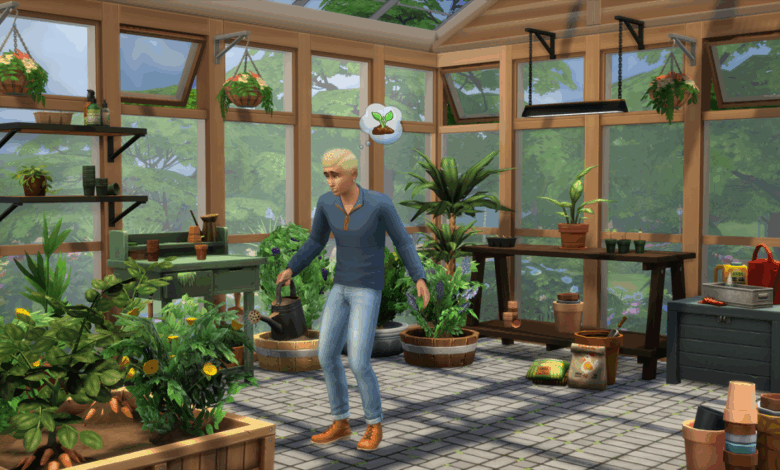Finding Your Digital Zen: Essential Cozy Life Simulators

In a world that constantly demands speed and high-stakes performance, sometimes what we truly need is a quiet corner to breathe.
That’s where cozy life simulation games shine. These aren’t games about winning, conquering empires, or saving the world; they are about cultivating a life, whether that involves tending a pixelated farm, running a small seaside café, or simply building the perfect tiny house.
They offer a soothing, low-stress escape where the only pressure is the gentle rhythm of the in-game calendar.
The modern life sim genre has grown far beyond simple farming, evolving into rich, deeply personal experiences that focus on crafting, community building, and self-expression.
They encourage creativity, patience, and mindful engagement, making them the ultimate digital antidote to real-life chaos. If you’re looking to slow down, find your digital ‘happy place,’ and nurture a virtual world, these expert recommendations and core principles of the genre will guide you to your perfect, cozy retreat.
The Philosophy of Cozy Gaming
The appeal of life simulation games lies in their ability to provide a sense of control and accomplishment without the threat of failure. The stakes are low, the goals are self-directed, and the environment is almost always charming and inviting.
A. The Joy of the Simple Task
Many life sims break down the chaotic nature of real life into manageable, repeatable, and satisfying tasks.
The simple act of watering crops, organizing a shelf, or completing a fetch quest for a neighbor offers immediate, positive reinforcement. This loop of small, rewarding actions is incredibly therapeutic.
B. Anti-Anxiety Mechanics
Cozy games are fundamentally anti-anxiety. They replace tight deadlines and punishing failures with generosity and forgiveness. If you forget to water your plants one day, they might wilt, but they won’t die permanently.
The game waits for you, ensuring that you can engage at your own pace, turning the experience into a genuine form of relaxation rather than a source of stress.
C. Creative Self-Expression
These games serve as perfect digital canvases. Whether you’re customizing a character, designing a home, decorating an island, or breeding a rare hybrid flower, the focus is on personal taste and creativity. This freedom allows players to project their ideal life into the virtual space.
D. Nurturing Relationships
A cornerstone of the genre is community. You spend significant time building relationships with non-player characters (NPCs). These interactions often reveal deep backstories, trigger unique events, and reward players with personalized gifts or heartfelt appreciation, satisfying our innate desire for social connection and belonging.
Farming and Life Management (The Foundation)
This is the classic core of the genre, where daily life revolves around the seasons, crops, and tending to the land. They are the ultimate embodiment of the slow-living ideal.
A. Stardew Valley: The Rural Renaissance
Often considered the modern gold standard, Stardew Valley perfectly balances deep farming mechanics with rich RPG elements.
- The Daily Loop: Every morning is a fresh start, forcing the player to prioritize: mining for resources, fishing for profit, tending the farm, or socializing in town. This routine brings structure to the day.
- Community and Romance: The residents of Pelican Town are complex and memorable. Building friendships, giving perfect gifts, and eventually pursuing marriage adds a compelling social layer that anchors the farming to a tangible emotional reward.
- Endless Discovery: The game constantly provides new areas to explore, secrets to unlock, and systems (like wine-making, monster hunting, and resource bundles) to master, ensuring that the cozy loop never becomes tedious.
B. Story of Seasons (The Original Pioneers)
The Japanese franchise formerly known as Harvest Moon continues to deliver pure, unadulterated farming simulation.
- Pure Agricultural Focus: These titles often feature more complex and realistic crop-management systems, including soil quality, mutations, and specialized tools.
- Seasonal Festivals: The emphasis is often placed on annual events, from cooking competitions to fishing derbies, which inject unique challenges and social rewards into the routine.
C. My Time at Sandrock: Farming Meets Frontier Building
This game expands the cozy formula by focusing heavily on crafting, engineering, and building a community in a desolate environment.
- The Builder’s Loop: Instead of relying solely on crops, the player takes on commissions to build machinery, repair infrastructure, and contribute to the town’s physical growth. The satisfaction comes from seeing a barren landscape slowly transform due to your effort.
- Adventure and Combat: While still relaxing, Sandrock introduces lightweight combat and dungeon crawling to gather rare resources, providing a stimulating break from the workshop without high-stakes difficulty.
Social and Artistic Expression Sims

These titles shift the focus away from resource extraction and onto decorating, community engagement, and pure, unrestricted creativity.
A. Animal Crossing: New Horizons: The Social Sandbox
This is the ultimate social and aesthetic life sim. Your island is a completely blank canvas governed by real-world time, which forces a slower, more deliberate pace.
- Time-Gated Content: By limiting major events and resource gathering to a real-time schedule, the game cleverly prevents binge-playing and encourages daily, short bursts of interaction, which is key to its relaxing nature.
- Interior and Exterior Design: The core gameplay is arguably decorating—designing your house, terraforming the island, and arranging furniture and custom items to achieve a personal aesthetic vision. The community aspect, driven by visiting friends’ islands, provides endless inspiration.
B. The Sims 4: Domestic Bliss and Chaos
While not always strictly “cozy” due to its propensity for random chaos, The Sims 4 is the unparalleled domestic life simulator.
- Character Nurturing: Players derive joy from meticulously building characters (Sims) and guiding their lives, careers, and relationships. It’s a powerful tool for storytelling and character development.
- Architectural Freedom: The game’s robust build mode allows for highly detailed architectural design, letting players recreate famous buildings or construct their wildest fantasy homes, making it a favorite among creative players.
C. Cozy Grove: Relaxation with a Ghostly Twist
Cozy Grove is unique because it’s designed to be played in short, daily sessions. You play as a Spirit Scout helping various charming ghosts find peace.
- Limited Daily Chores: The game intentionally limits the amount of content available each day (typically less than an hour of new quests). This perfectly enforces the “slow down” philosophy, preventing burnout and keeping the experience fresh.
- Visual Transformation: As you help the ghosts, the colorless island slowly fills with bright, hand-drawn color, providing a visually stunning and deeply satisfying representation of your progress.
Niche and Profession-Based Sims
This category features games that focus on mastering a specific trade or role within a cozy, inviting world, adding a layer of depth beyond simple farming.
A. Palia: Farming, Exploring, and Multiplayer
Palia is often described as a cozy MMO, merging the open-world social elements of an MMO with the quiet satisfaction of a life sim.
- Shared Progression: Players can team up to fish, hunt, or gather, or simply hang out in a vast, beautiful world. The low-stress social element is key to its appeal.
- Diverse Skills: The player balances multiple skills—gardening, furniture making, foraging, and bug catching—all of which feed back into the community and your personal home development.
B. Coffee Talk / Potion Permit: The Service Role Sim
These games focus on serving others and building relationships through a professional role.
- Coffee Talk: You run a late-night coffee shop and listen to the problems of your diverse, sometimes fantastical, clientele (elves, aliens, etc.). The gameplay involves mixing the right drinks based on their mood. The joy is purely narrative and empathetic.
- Potion Permit: You are the town’s chemist/doctor, diagnosing ailments, gathering ingredients in the wild, and brewing cures. It adds a rewarding exploration and crafting loop centered on community health.
C. Unpacking: Organizational Zen
This highly unique game is purely about unpacking boxes as a character moves through different stages of their life.
- Environmental Storytelling: There is no dialogue. The story is told entirely through the items you unpack and where you choose to place them. It turns the mundane act of moving into a profound exercise in storytelling and personal reflection.
- Satisfying Clutter Removal: The core mechanic is the satisfying act of finding a perfect place for every item, delivering a deeply felt sense of order and completion.
Mastering the Cozy Lifestyle: Advanced Tips
To get the most relaxation out of your life sim, it helps to adopt certain mindsets and strategies that leverage the game’s mechanics for maximum tranquility.
A. Embrace Inefficiency
Resist the urge to look up the “most profitable” crop or the “fastest” way to level up. Embrace inefficiency and experimentation. The fun lies in discovering what works for you, not what the wiki says is optimal. Plant a ridiculous field of pumpkins just because you like pumpkins.
B. Prioritize Relationship Building
In the early stages of many life sims, players rush to make money. However, the deepest, most enduring rewards often come from maxing out friendships. Socialize daily, attend every festival, and commit to understanding the town’s residents. They are the heart of the game.
C. The Power of Aesthetic Goals
Set goals that are purely aesthetic, not functional. For instance:
- Create a dedicated museum room for rare items.
- Design a garden that only uses shades of blue and purple.
- Build a highly detailed, non-functional path system on your farm, simply because it looks beautiful.
D. Use Music and Ambience
Many cozy games feature incredible, relaxing soundtracks. Turn off the game’s music occasionally and play ambient tracks—rain sounds, gentle jazz, or instrumental lo-fi—to deepen the sense of peace and isolation.
Conclusion
The rise of the cozy life simulator genre is a direct reflection of our collective need for a digital refuge. These games provide more than just entertainment; they offer a therapeutic space where the harsh demands of the modern world are replaced by the soft glow of a perfect sunset over a meticulously tended farm.
The focus is on growth, nurturing, and patient development, whether that’s nurturing a new friendship in Stardew Valley, designing a perfectly ordered kitchen in Unpacking, or slowly coaxing color back into the ghostly world of Cozy Grove.
What makes these games so essential is their radical acceptance of the player’s pace. They stand in stark opposition to the adrenaline-fueled, competitive games that dominate the market.
You are not penalized for taking a break; the flowers will wait, the neighbors will still wave, and the digital sun will continue to rise over your peaceful domain.
By offering a customizable, low-stakes world where the only success criteria is your own happiness, life sims have become the ultimate form of mindful digital engagement.
For anyone feeling overwhelmed, the best investment isn’t in a faster pace, but in a slower one. Dive into these worlds, let the seasons turn, and find your own essential digital zen.
The simple act of creating something beautiful and orderly in a small, perfect corner of the internet is a deeply rewarding experience that truly nourishes the soul.
